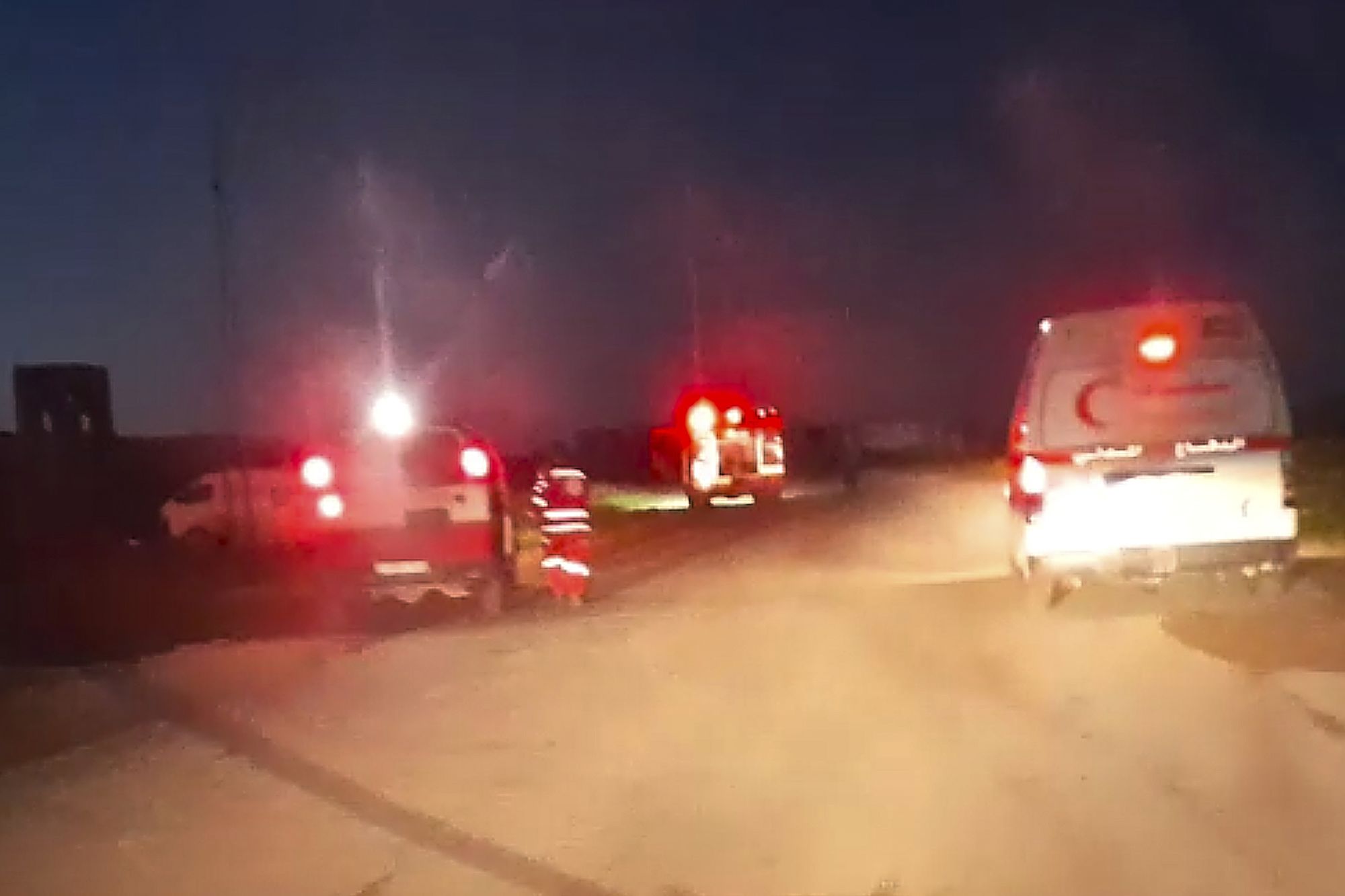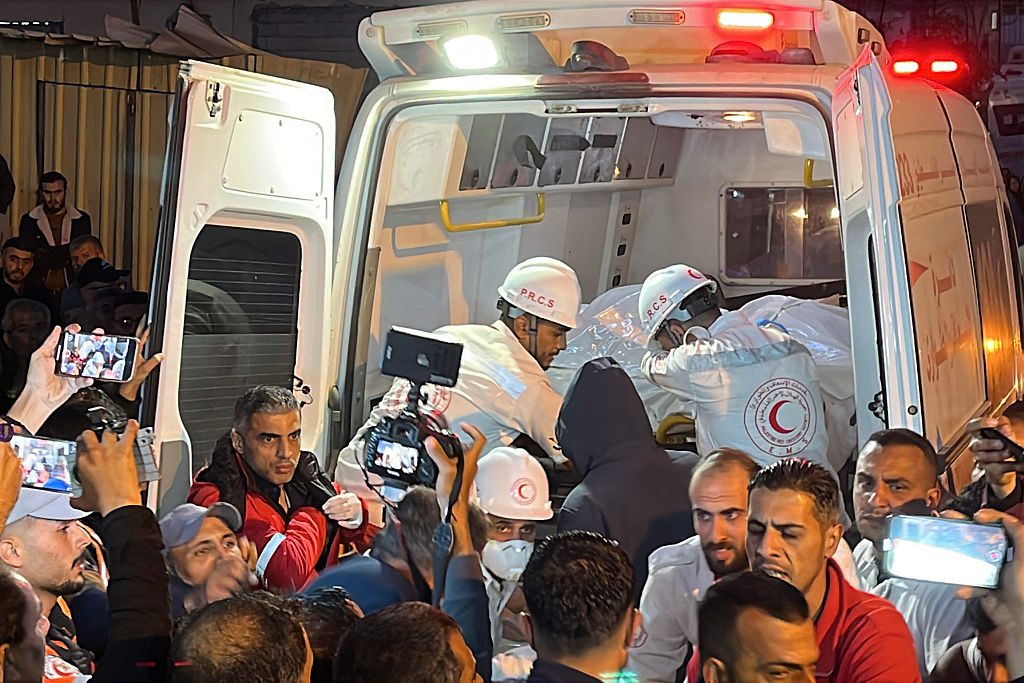Israeli Military Probe Reveals "Professional Failures" in Gaza Aid Worker Killings
Israel's military investigation into the March 23 killing of 15 Palestinian emergency workers in Gaza has identified "several professional failures" and resulted in disciplinary actions against officers involved, as humanitarian organizations worldwide continue to demand accountability for what many experts describe as a war crime.
Key Findings of Israeli Military Review
The Israel Defense Forces (IDF) released details on Sunday from their investigation into the deadly incident, which concluded that the killings resulted from "an operational misunderstanding" by troops who believed they faced an immediate threat. The military cited poor night visibility as a key factor that prevented soldiers from identifying the vehicles as ambulances, despite video evidence showing the vehicles had their emergency lights activated.
"The examination identified several professional failures, breaches of orders, and a failure to fully report the incident," the military said in its statement. The report also acknowledged that after the shooting, Israeli forces buried most of the victims in a mass grave and crushed the ambulances, fire truck, and a UN vehicle—actions later deemed inappropriate by the investigation.
The investigation led to disciplinary measures, including the dismissal of a battalion's deputy commander "for providing an incomplete and inaccurate report during the debrief," while a brigade commander received a formal reprimand for his overall responsibility in the incident.
Contested Claims and Evidence
While the IDF claimed that six of the casualties were Hamas members, the military did not produce evidence for this affiliation, despite the names of those killed being in the public domain. This claim contradicts accounts from humanitarian organizations including the Palestinian Red Crescent Society (PRCS) and United Nations, which identified the victims as emergency workers.
The Israeli military's account of events has evolved significantly since the incident. Initially, Israel claimed troops opened fire because the convoy approached "suspiciously" in darkness without headlights or emergency signals. However, this narrative was later retracted after video recovered from a killed paramedic's phone showed the vehicles with their lights clearly visible and emergency signals activated.
In the footage, which is more than five minutes long, a paramedic can be heard saying his last prayers before the voices of Israeli soldiers approach the vehicles.
International Reaction and Humanitarian Impact
The killing of the 15 emergency workers has sparked international condemnation and outrage from humanitarian organizations worldwide. Jagan Chapagain, Secretary General of the International Federation of Red Cross and Red Crescent Societies (IFRC), expressed profound dismay over the incident.
"I am heartbroken. These dedicated ambulance workers were responding to wounded people. They were humanitarians. They wore emblems that should have protected them; their ambulances were clearly marked," Chapagain stated. "Even in the most complex conflict zones, there are rules. These rules of International Humanitarian Law could not be clearer—civilians must be protected; humanitarians must be protected."
The IFRC noted that this incident represents the single most deadly attack on Red Cross Red Crescent workers anywhere in the world since 2017, bringing the total number of Palestine Red Crescent volunteers and staff killed since the beginning of the conflict to 30.
Human rights experts and international observers have described the attack as a war crime, pointing to the clear identification of the humanitarian workers and their vehicles, which should have afforded them protection under international humanitarian law.
The Victims and Ongoing Search
The victims identified in the attack included eight medics from the Palestine Red Crescent Society: ambulance officers Mostafa Khufaga, Saleh Muamer, and Ezzedine Shaath; first responder volunteers Mohammad Bahloul, Mohammed Al-Heila, Ashraf Abu Labda, Raed Al Sharif, and Rifatt Radwan. Additionally, several civil defense staff and a UN employee were among those killed.
One ambulance officer, Assad Al-Nassasra, was still reported missing when the bodies were recovered a week after the incident. The victims' bodies were found in a shallow grave where they had been buried after the attack, according to UN and Palestinian Red Crescent officials who recovered the remains.
Broader Impact on Humanitarian Operations
The killings have further complicated already challenging humanitarian operations in Gaza, where aid workers face significant risks in delivering critical assistance to civilians. The attack has heightened concerns about the safety of medical personnel and humanitarian workers operating in the conflict zone.
Medical and aid organizations have repeatedly called for better protection of humanitarian staff, emphasizing that attacks on medical personnel not only violate international humanitarian law but also severely compromise the ability to provide urgent care to wounded civilians.
According to multiple relief organizations, more than 400 aid workers have now been killed in Gaza since the conflict escalated, significantly hampering the delivery of essential medical services and humanitarian aid in a region already facing catastrophic humanitarian conditions.
What Happens Next?
As the investigation concludes with acknowledgment of failures but limited accountability measures, questions remain about whether the disciplinary actions taken by the Israeli military will satisfy international demands for justice. Human rights organizations continue to call for an independent international investigation into the incident.
The attack on clearly marked emergency vehicles with uniformed personnel highlights the broader challenges of ensuring humanitarian access and protection in one of the world's most intense conflicts. As both sides continue to trade accusations, will this incident prompt meaningful changes to protect humanitarian workers, or will it merely add to the growing list of casualties in a war with no end in sight?





